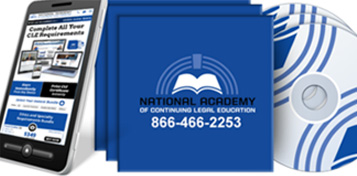About This Course
Hundreds of thousands of times per year in all American jurisdictions, liability insurers agree to defend their policyholders against liability disputes and hires pre-approved panel of defense counsel to do two things: protect the insurer’s interests as potential indemnitor and represent the policyholder as a party to a liability dispute. Rules of Professional Conduct, Rule 1.7 imposes on panel counsel six prongs of ethical prohibitions and permissions, each of which must be investigated and analyzed in order to comply with the Rules.
If this investigation and analysis correctly determine that a disqualifying conflict of interest exists, panel counsel must disclose the conflict of interest analysis in writing before accepting representation of the policyholder and obtain informed written consent. Fifty American jurisdictions have ruled that policyholders are or are not entitled to select and direct independent counsel at the insurer’s expense.
The law throughout the nation is well developed to identify a short list of factors to determine whether the insurer or the policyholder may control the defense, whether defense counsel is selected and directed by the insurer or the policyholder, and how much and how often the insurer must pay independent counsel - if evidence exists to prove these factors.
This CLE course will analyze Rule 1.7 and related Rules, the array of judicial tests developed among the jurisdictions, and explore the power held by policyholders, and defenses held by reserving insurers and their panel counsel.
The presenter has roots in the insurance industry, but now represents policyholders exclusively. The legal authorities are thorough and unbiased, but the course will be peppered with practice pointers for policyholders and their independent counsel.






